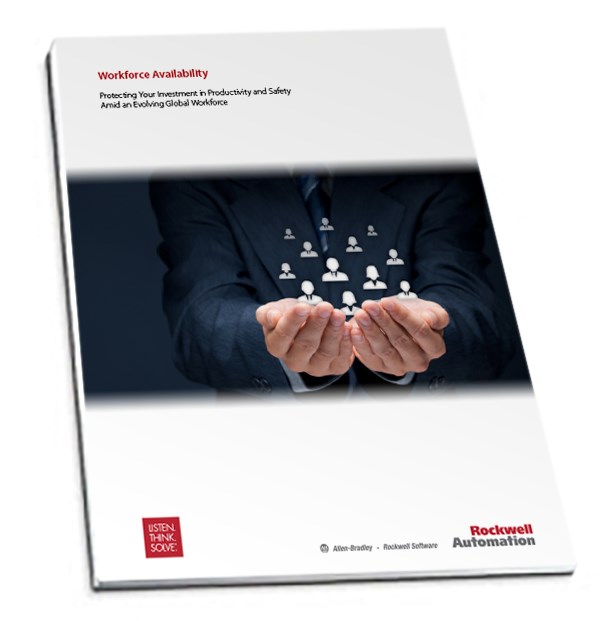How Industry 4.0 can help you to overcome your workforce challenges

Industry 4.0 thinking and the industrial Internet of Things are transforming manufacturing and industrial operations through deeper visibility, greater connectivity and enormous potential for improvement.
Companies using Industry 4.0 based principles are finding that they bring people, processes and equipment together, from sensors and smart devices to entire systems. Connectivity deepens operators’ understanding of events and sharpens decision-making. The proliferation of smarter end points, data analytics, scalable computing, mobility and visualisation are reshaping the future of industrial automation.
Collaborative intelligence
Industry 4.0 solutions help to better gather and analyse data, and transform it into actionable, real-time insightful information. This supports the connection of global operations to the enterprise and extended business systems, allowing for better collaboration, faster problem-solving and improved innovation. Equipment and devices become intelligent assets capable of reporting a wealth of production information including diagnostics and energy. Having this knowledge enables faster and better business decisions that can help increase productivity, improve quality and help to meet demand more precisely and cost-effectively.
New skillsets
However, with these rapid advancements in technology come new demands on the workforce. It takes a skillset to enable IT/OT convergence and to take advantage of the potential in an industrial context. To get the benefits of Industry 4.0, IT and OT roles that have long remained separate are now blending, requiring additional skills and training for both individuals and teams.
To this end, workers on the plant floor are becoming experts in areas such as networking technology, data analytics and industrial security. Organisations embracing the new era of Industry 4.0 concepts and information-enabled manufacturing and industrial production are taking an active role in ensuring workers have the skills and knowledge necessary. This can help make the transition seamless and ensure they’re getting the most from their connected operations.
To learn more, read the white paper